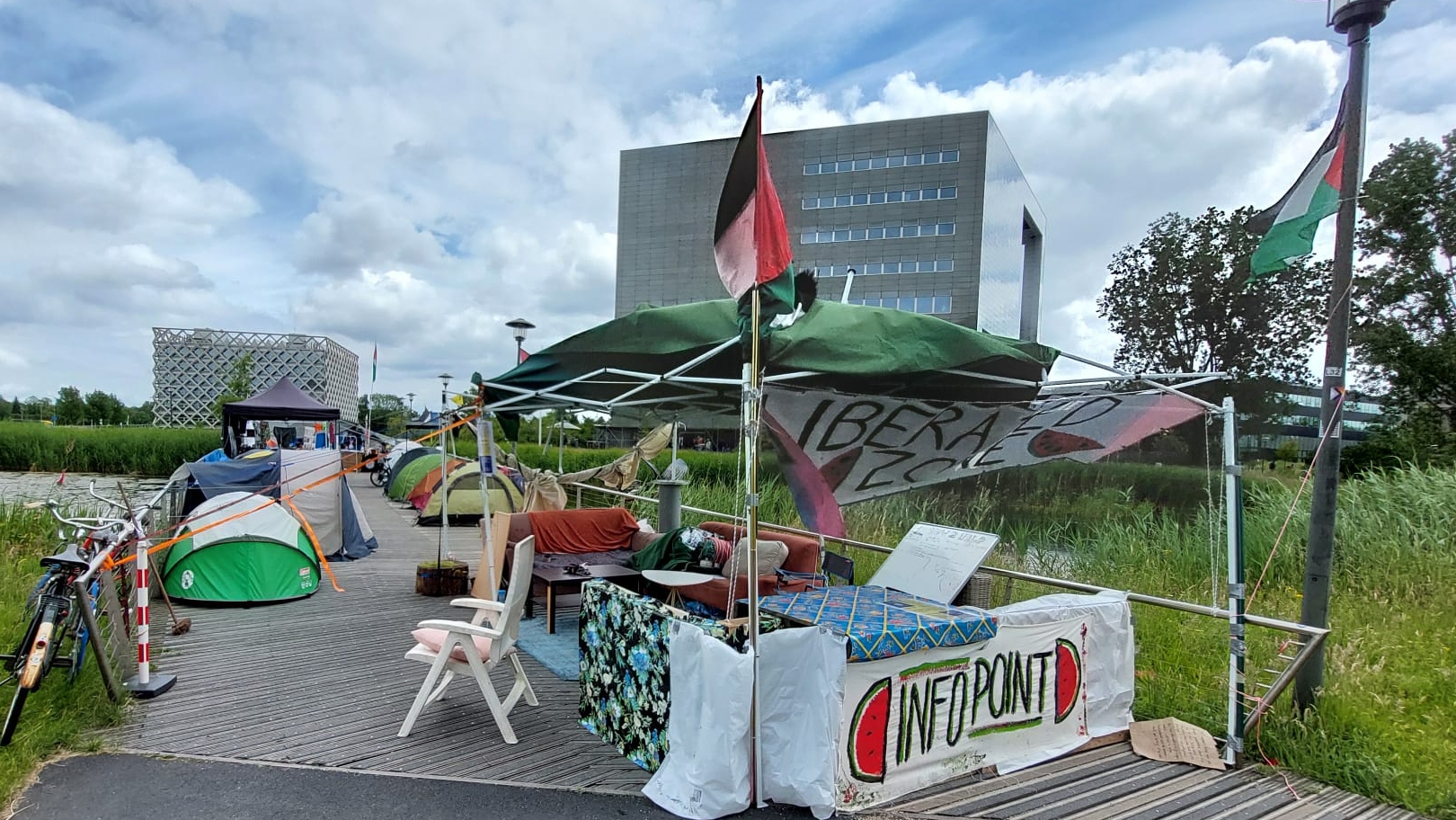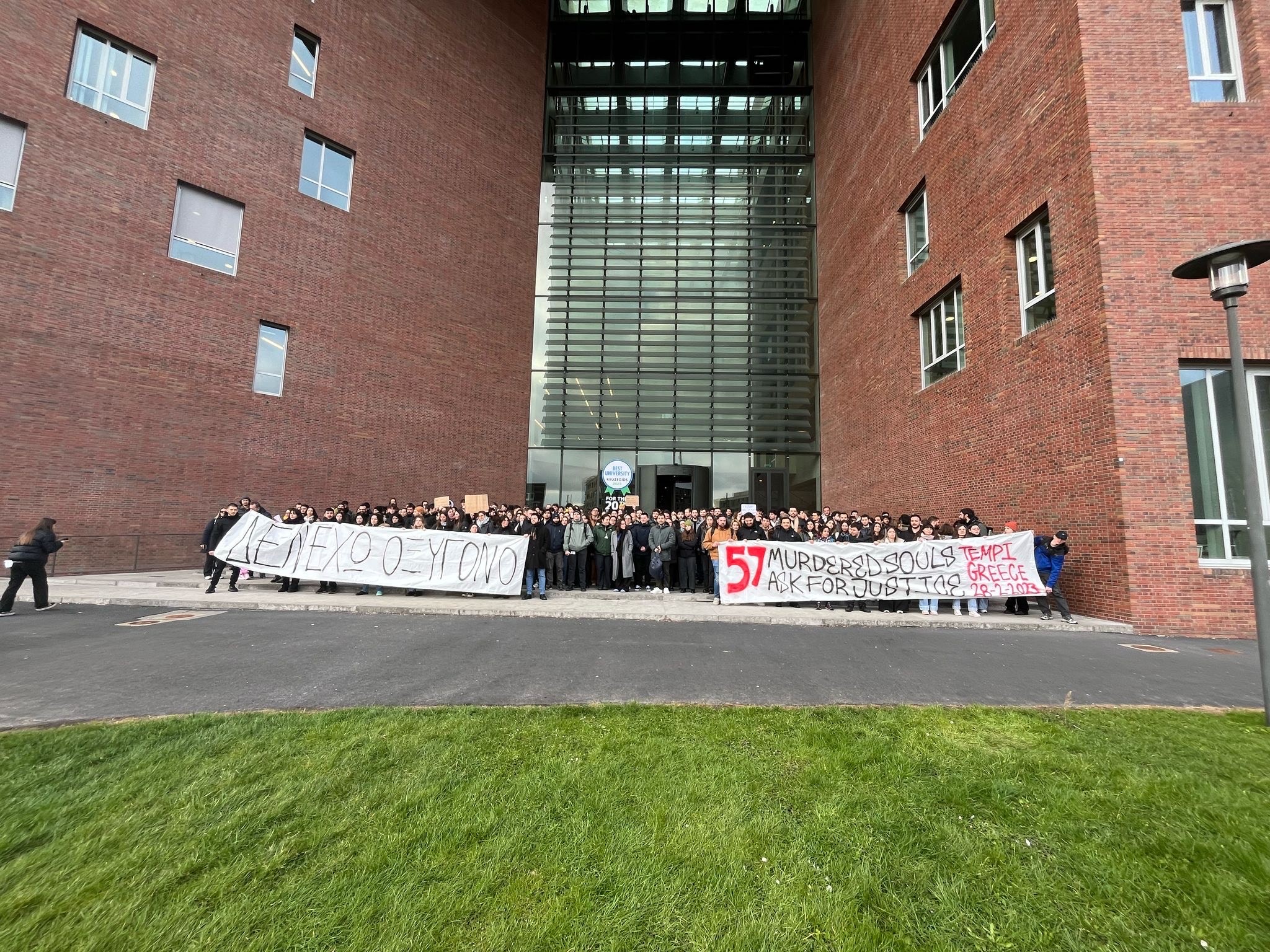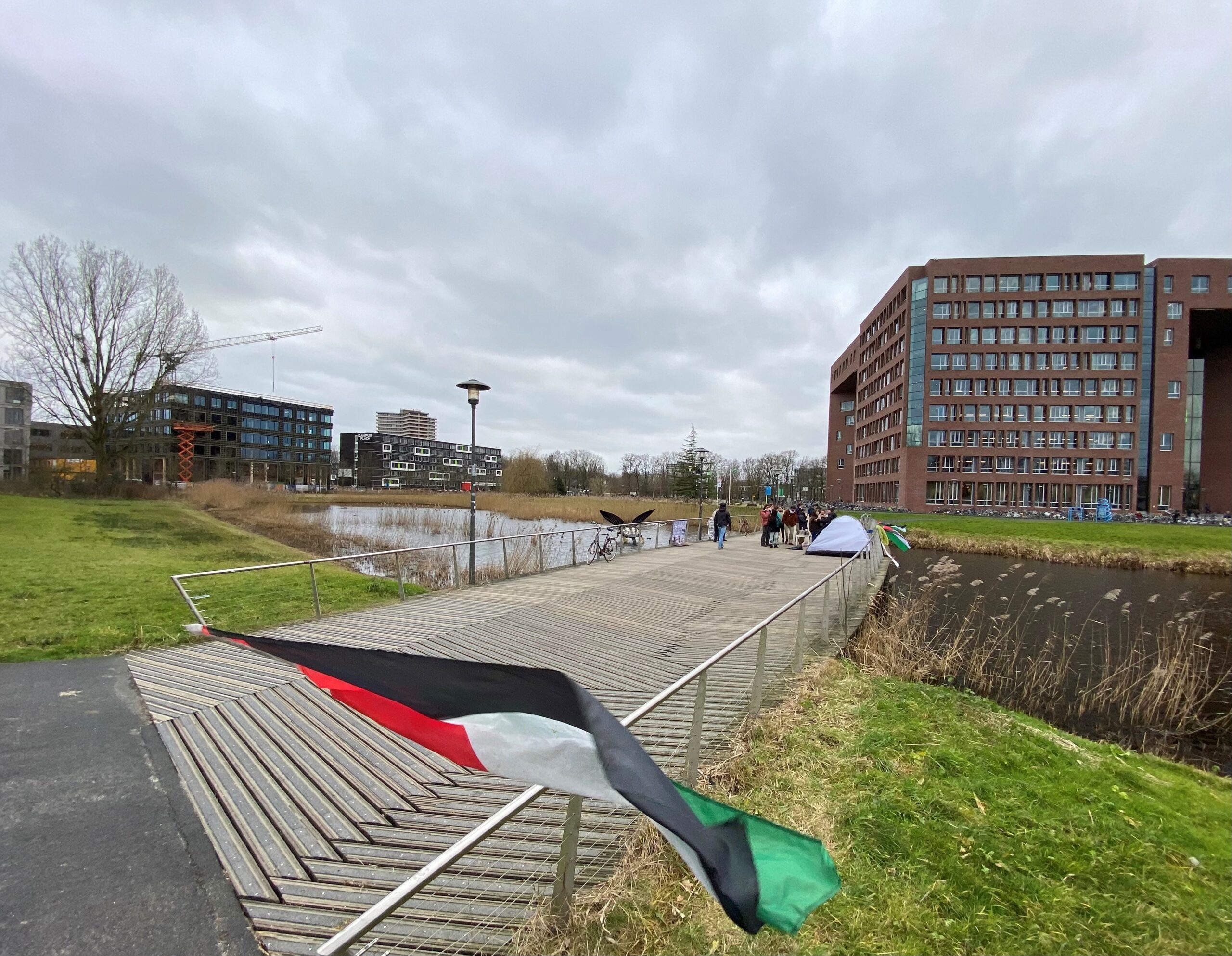‘Entering into open, academic conversation and debate, especially in these difficult, polarizing times, is very important to us.’ – Carolien Kroeze, together with 14 other rectors, Trouw (7 June 2024).
Dear Executive Board,
We, the students demonstrating in the tent camp between Orion and Forum, call on you, the WUR Executive Board, to publicly debate with us on Monday, June 17, 7:00 PM – 9:30 PM in Forum C0222 (or any other nearby date and time that suits you) about an institutional boycott of Israeli universities and companies that are complicit in gross and systematic human rights violations, and actively facilitating genocide in Gaza.
The case for a boycott
From a university, we hope that the decisions made by the board are based on scientific grounds, such as the burden of proof and critical thinking. The protesting students and various collectives of academic staff have provided convincing scientific evidence that a genocide is underway in Gaza, that Israeli universities are helping to enable it, and that boycotts are an effective means to stop it. We have made our argument clear. The burden of proof is now on you, the Executive Board.
Every day that you stall in this fundamental responsibility to defend your inaction to our community, the ethical case for boycotting grows stronger. Firstly, there is a growing consensus that the war crimes committed in Gaza constitute genocide. The International Court of Justice, the majority of the UN General Assembly, Amnesty International, Oxfam Novib, The Red Cross, Doctors Without Borders and many other independent human rights organisations all warn of genocide.
Second, Palestinian and Israeli scholars have demonstrated that Israeli universities play a core role in the occupation and apartheid system in Palestine and that they carry out key functions that make the genocide in Gaza ideologically and militarily possible. WUR collaborates with these institutions despite the fact that they are knowingly, directly and actively involved in these crimes against humanity and in the long-standing pattern of gross and systematic human rights violations against the Palestinian civilian population.
Lastly, institutional boycotts of scientific institutions have been shown to be effective in other contexts. We see South Africa as an example: where during the time of Apartheid, international boycotts applied pressure to the government until a referendum was held, ending the Apartheid system.
You have cited academic freedom as the reason an institutional boycott is impossible. However, let us not forget that when the Dutch government requested a boycott of Russian scientific institutions, the Executive Board complied within a matter of days. Academic freedom, however, is the freedom of the academic community vis-à-vis its government. It is precisely the freedom of academics to collectively draw a moral line in their relations, free from the political interference of a government, that determines where a boycott is justified and where it is not.
Today, we can already see that many institutions understand the argument above and its ethical implications. Universities across the globe have already taken action to minimise their complicity in genocide: five universities in Norway, all universities in Spain; the University of Dublin, Brussels, Leuven, Ghent and a number of Dutch educational institutions have severed ties. The boycott is no longer radical or unthinkable.
You, the Executive Board, have refused to cut ties.
Over the last eight months, your inaction on this matter has generated profound moral concern amongst staff and students, who have been consistently requesting a boycott through letters, petitions and peaceful protests. At the WUR, more than 300 employees have signed a petition expressing their fundamental disagreement with your policies. More than 800 people agree fully with the demands of the Wageningen encampment. Critical students have been ignored and patronised, with more concern and outrage from you over our protest tactics than the horrifying war crimes our institution is complicit in.
We request a public debate on boycotting
On Wednesday, 5th June, you also refused to enter into a public dialogue about the possibility of boycotting because you felt ‘threatened’ by our action in Atlas.
As an act of good faith, the students have stopped all disruptive protesting for one week to remove any threat that you felt. We therefore expect your full participation since we know that you, like us, believe that ‘entering into open, academic conversation and debate, especially in these difficult, polarising times, is very important’. We hope that you, like us, wish to address the chasm that your inaction has created between the academic community and the administrators.
Your refusal to engage in debate has raised profound moral concerns amongst staff and students. All members of our academic community – whether or not we support an institutional boycott – have the right to form an opinion and to have this opinion informed by an honest and open conversation in which both sides have an equal opportunity to defend their position. It is such an open and transparent conversation that can produce understanding, peace and harmony within the community – not the closed backroom conversations with various pressure groups that have taken place thus far.
Executive Board, grant our academic community the right to hear an honest and open debate about this boycott. We will accept any debate format with you that allows critical and scientific investigation into this matter. We sincerely hope that you fulfil your duty as accountable leaders of a scientific institution and begin to address the grave moral concerns of our community.
With concerned greetings,
The students in the tent camp between Forum and Orion

 Photo Sjoukje Osinga
Photo Sjoukje Osinga 

